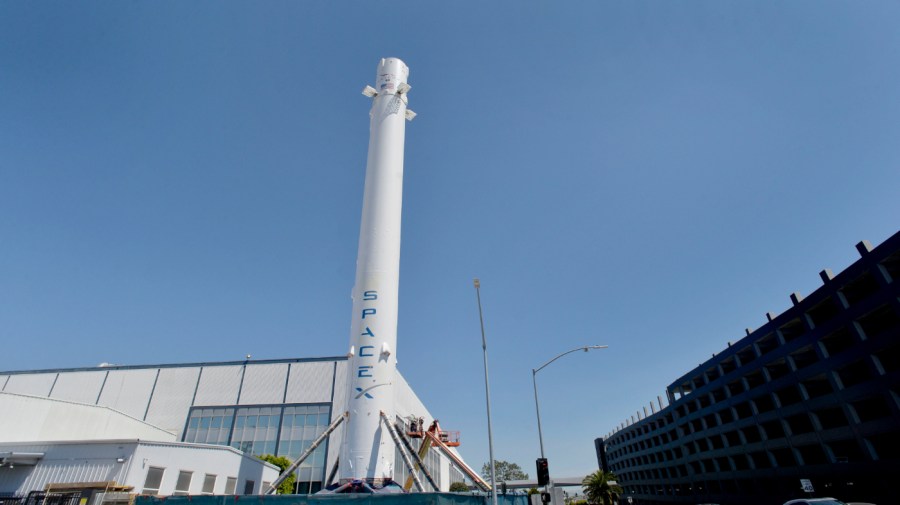The space industry was ecstatic to get a shout-out in President Trump’s first Joint Address to Congress. It appeared to be a signal that his administration was going to prioritize space issues, as it had during Trump’s first term, when significant attention was paid to ensuring the competitiveness of the space industry.
Unfortunately, the ever-evolving tariff regime is set to have the opposite effect. It will raise the cost of making rockets and satellites in the U.S., limit industry access to core inputs and materials and encourage boycotts of American products and services abroad.
To begin with, while the space industry relies primarily on domestic manufacturing, given its current orientation towards government customers, it buys many raw inputs and certain key components from allied nations.
Aluminum and steel, which have been singled out within the tariff regime, are used extensively by the space industry. Increased costs or shortages will directly affect the industry’s ability to deliver spacecraft, rockets, satellites and more on time and on budget. Canada alone supplies more than half of the aluminum Americans use.
This goes for NASA missions just as it does for Elon Musk’s SpaceX, which uses aluminum and steel for engines, propellant tanks, rocket bodies, and more.
The situation is only poised to get worse with looming tariffs of 25 percent or more on Japanese, Korean and Taiwanese semiconductor chips. And that’s just the direct effect of tariffs currently being considered, implemented or paused.
It’s still unclear what the full extent of retaliatory measures other countries will take in response will be. They can range from tariffs on American satellites, boycotts of U.S. launch services, disqualification of American firms from procurement and more.
The U.S. government has facilitated the growth of the commercial space industry for decades, and one core element of that business model is having customers other than the U.S. government. American launch and reentry companies dominate the global launch market, with customers representing at least 40 nations in 2024 alone, and aerospace firms counted $125 billion in exports last year.
Unfortunately, in light of Trump’s actions, the global community is both retaliating against American businesses and investing in their own capabilities with an eye towards long-term reduced reliance on American capabilities.
Given the long lead time of these foreign capabilities, the effects will only become clear over time, but make no mistake: This is a long-term blow to American space leadership and the resulting soft power, not to mention national and economic security, that comes with it.
Just as one example, the American space industry is already suffering from the export bans on germanium imposed by China last year. Germanium is used for solar arrays in space as it is uniquely suited to the challenging conditions. China is not the only country that exports germanium, but it is the largest, meaning this action has made it more expensive and challenging to acquire the material.
This 2024 export ban came about as a result of the U.S. restrictions on semiconductor-related exports. While germanium is highly useful for space, it is best known for its importance to the semiconductor industry.
The new tariffs, covering not only China but also decades-old space industry partners in Japan, Canada, the European Union and the United Kingdom, are significantly worse. It’s terrifying to consider what kinds of retaliatory actions might be taken and the impact they could have on the American space industry.
And what makes it all worse, there is no reason for these tariffs at all. As their harm spreads from this week’s financial market crash to America’s top-tier manufacturing and tech industries, President Trump must reconsider.
Mary Guenther is the Progressive Policy Institute’s director of space policy.
















Leave a Reply